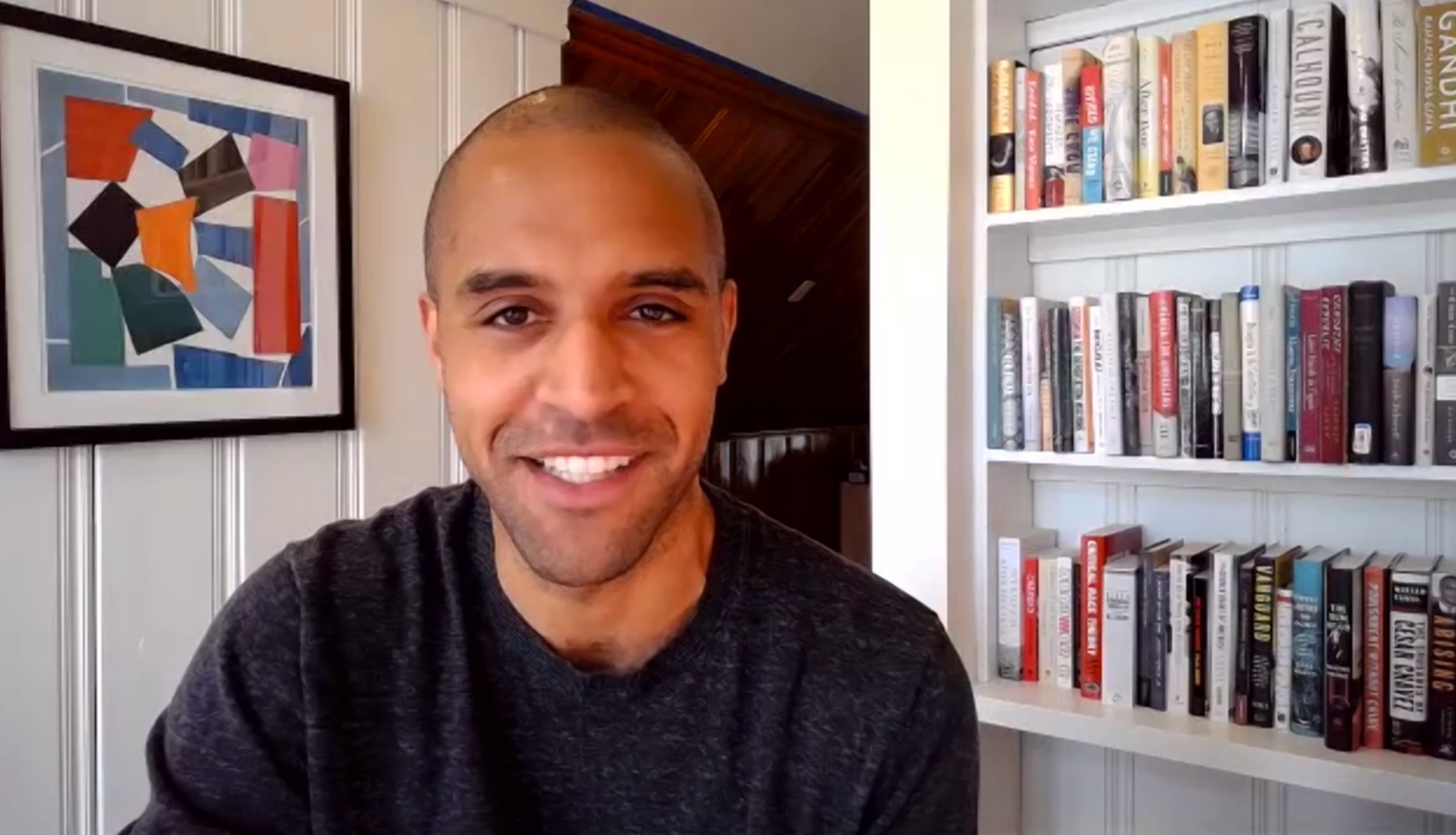“Attaining power does not make you a moral person,” said Nikolas Bowie ’14, assistant professor of law at Harvard Law School, in his April 22 Last Lecture to graduating students. Instead, Bowie urged graduates to plan for “precisely when you are going to abandon the ladder of power,” and work to build influence with and for those who do not yet have it.
Bowie began his Last Lecture — a customary farewell by select HLS faculty to graduating students — by imploring them to think about the family and community members who helped get them to where they are now, and counseling them not to abandon the ideals that drove them to law school in the first place.
Recounting the story of his own journey to Harvard Law School, Bowie spoke of his mother, Lani Guinier, a civil rights attorney — and later Harvard Law School professor — who was President Bill Clinton’s nominee for assistant attorney general for civil rights in 1993. During the confirmation process, Guinier suffered racist and sexist attacks for articles she had previously written about the problems with the United States’ “all or nothing” electoral system, Bowie said. Eventually her nomination was unceremoniously withdrawn by the president.
Yet despite how difficult the time was for his mother, Bowie said, she never disavowed her beliefs. “It was humiliating. She called it her disappointment to be labeled anti-democratic by the president of the United States, but it also gave her a national platform to explain her views … She rose to the occasion.”
If you start wielding the power you already have to organize and mobilize the people who haven’t had your privileges or education, you might find that the best strategy for combating injustice is … building power where it does not yet exist.
Some people may look at her experience and wonder why she hadn’t just rejected her earlier writings to ensure a successful confirmation, Bowie said. In other words, “the lesson was that when you’re climbing the ladder of power, it’s best not to shake things up until you’re at the top.”
Bowie insisted that assumption was flawed.
“First, as you have probably learned by now from your own experience, the ladder of power is a long one, without any clear ending,” he said. “It’s always possible to say, ‘Yeah, I’m going to dedicate my energy to combating injustice, but first I’m going to go to law school, or first, I’m going to work at a firm for a few years, or first I’m just going to make partner, or first, I’m going to get tenure, or first, I’m going to be a judge.’ If you decide to remain silent about injustice, at least for now, you might find that you never get a chance to say anything at all.”
Moreover, he said, once you’ve begun to attain power, “if you’re always looking up, you’re going to miss how far you’ve climbed. It’s so easy to feel powerless,” he said, adding that as soon-to-be Harvard Law School graduates, they had more power than perhaps they realized.
Even once you’ve obtained power, Bowie said, “What do you expect will happen when you reach the top? If you spend your career remaining silent, why would you expect that you will suddenly find your voice?”
In fact, it was his mother’s courage of conviction and the movement that she subsequently helped to build that truly made a difference, said Bowie. “It wasn’t the president that sustained her in the years after her nomination, it was the broad community of allies she had built up using her own scholarship and advocacy on behalf of others.”
Bowie encouraged students to think about how they would use their law degrees to address problems in the world, adding that “You can ignore … injustices only at your peril. They will not wait while you climb the ladder of power, they will not go away as you reach the top.”
“You are about to become lawyers with Harvard Law degrees, extraordinarily powerful people in American society,” he said. “If you stop climbing the ladder of power for a moment and start wielding the power you already have to organize and mobilize the people who haven’t had your privileges or education, you might find that the best strategy for combating injustice is not just placating people who are already powerful, but building power where it does not yet exist.”
Bowie said he had no doubt that every graduate would be successful in whatever career they chose, but he asked them to remember who they had wanted to be when they started at HLS. “I hope someday [when you return to campus], someone tells you that they became a law student because of you.”
